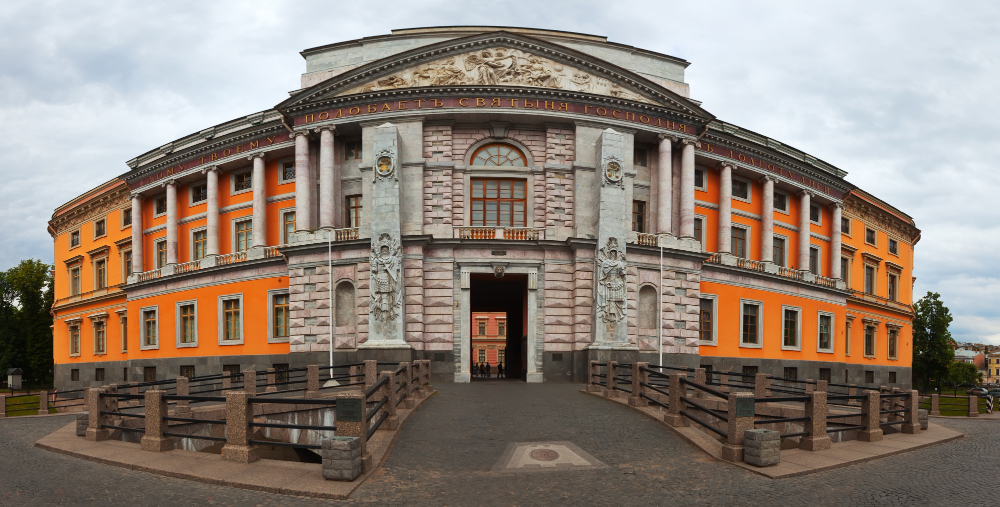Study in Europe
Studying in Europe is a dream for many students around the world. Renowned for its rich cultural heritage, high-quality education systems, and diverse landscapes, Europe offers an array of opportunities for international students. From historic universities with centuries of tradition to innovative and cutting-edge institutions, Europe caters to a wide range of academic interests and career aspirations. However, navigating the process of studying in Europe can be daunting for prospective students. This comprehensive guide aims to provide insights into the opportunities, challenges, and tips for studying in Europe.
Why Study in Europe?

Academic Excellence
Europe boasts some of the world's top-ranked universities renowned for their academic excellence and research output.
Cultural Diversity
Students have the opportunity to immerse themselves in diverse cultures, languages, and traditions, fostering personal growth and global awareness.
Affordable Education
Many European countries offer affordable or even tuition-free education, particularly at public universities, compared to other study destinations.
Travel Opportuunities
With its well-connected transportation network, studying in Europe provides easy access to travel and explore neighboring countries and regions.
Language Learning
Studying in Europe offers the chance to learn or improve proficiency in languages such as English, French, German, Spanish, and more.
Quality of Life
Europe is known for its high standard of living, including excellent public transportation, healthcare, and safety. Many European cities regularly rank high in global quality of life surveys, offering students a comfortable and enriching environment to live and study.
Innovative Research
Europe is at the forefront of research in many fields, including engineering, healthcare, environmental science, and humanities. Students can engage in cutting-edge research, often in collaboration with leading corporations, research institutes, and international organizations.
Networking and Career Opportunities
Studying in Europe allows students to build a diverse and international network of peers, academics, and professionals. Many European universities have strong links with industries and offer internships, job placements, and alumni networks that can be invaluable for career development.
Work Life Balance
European culture places a strong emphasis on work-life balance, offering students a holistic educational experience that values personal time, leisure, and exploration. This approach to life and learning can contribute to a more fulfilling and less stressful study experience.
Global Perspective
By studying in Europe, students gain a global outlook and intercultural competencies that are highly valued in today's interconnected world. This experience prepares graduates to work and thrive in diverse teams and environments, setting them up for success in global careers.
Types of Institutions
Universities
Europe is home to a wide range of universities, including ancient institutions with centuries of history and modern universities known for their innovative programs.
Colleges
Many European countries have colleges that offer specialized vocational and technical programs catering to specific industries.
Research Institutions
Europe hosts numerous research institutions and centers focusing on various fields, providing opportunities for cutting-edge research and collaboration.



Structure of Higher Education System In Europe
The structure of the higher education system in Europe is characterized by diversity, with variations across countries due to historical, cultural, and educational policy differences. However, many European countries have aligned their higher education systems with the Bologna Process, an agreement among European countries to ensure comparability in the standards and quality of higher-education qualifications. Here’s a general overview of the structure based on the Bologna Process framework and other common features across Europe:
1. First Cycle: Bachelor's Level
Duration: Typically 3 to 4 years.
Qualification: Bachelor's Degree
Purpose: Provides foundational knowledge in a specific field of study, along with general academic skills.
2. Second Cycle: Master's Level
Duration: Usually 1 to 2 years (with a requirement of 5 years of study including the bachelor's phase).
Qualification: Master's Degree
Purpose: Offers advanced study and specialization in a particular discipline or professional field. It may also prepare students for doctoral studies.
3. Third Cycle: Doctoral Level
Duration: Varies widely, generally 3 to 4 years following a master's degree.
Qualification: Doctorate (Ph.D. or equivalent).
Purpose: Focuses on original research, dissertation writing, and the creation of new knowledge or professional practice.
4. Short Cycle (Within or Linked to the First Cycle)
Duration: Typically 1 to 2 years.
Qualification: Often a diploma or foundation degree.
Purpose: Provides vocational education and training, or preparatory education for bachelor's level study.
Key Features Across Europe
Most European countries use the European Credit Transfer and Accumulation System (ECTS) to measure and compare learning achievements. A full-time year of study is typically worth 60 ECTS credits.
Students and scholars are encouraged to spend part of their education in other countries through programs like Erasmus+.
European countries have developed quality assurance agencies to ensure the standard and improvement of higher education.
Many European countries emphasize the importance of continuing education and vocational training throughout an individual’s career.
Variations Across Europe
The length and structure of degrees can vary. For example, some countries offer integrated master’s degrees (especially in fields like engineering and law) that take longer but lead directly to a master’s qualification without a separate bachelor’s degree.
Higher education institutions can be broadly categorized into universities (which usually offer a wide range of bachelor’s, master’s, and doctoral degrees and are involved in research) and universities of applied sciences (which focus on preparing students for specific professions and may have a stronger emphasis on teaching and applied research).
These can vary significantly between countries and institutions. Some systems are highly selective, while others are more open.
These vary widely from country to country, with some countries offering free higher education to EU/EEA students, while others charge tuition fees.
While English is widely used for many programs, especially at the Master’s and Doctoral levels, undergraduate programs often use the country’s native language.

Popular Study Destinations in Europe
Each of these European countries offers unique opportunities and environments for international students, blending high-quality education with rich cultural experiences. Here’s a closer look at what United Kingdom, Ireland, Germany, the Netherlands, France and Denmark have to offer as popular study destinations:
United Kingdom

Why Popular?
What to know:
Academic Excellence: The UK’s education system is known for its rigorous standards, research opportunities, and innovative teaching methods.
Language: English, making it a top choice for students seeking to perfect their English skills while obtaining a high-quality education.
Costs and Scholarships: The UK is one of the more expensive countries to study in, with higher tuition fees and living costs, especially in London. However, there are numerous scholarships and financial aid options available for international students.
Work Opportunities: Students can work up to 20 hours per week during term time and full-time during holidays. Post-study work opportunities have been enhanced with the introduction of the Graduate Route visa, allowing students to stay and work in the UK for two years after graduation (three years for PhD graduates), without the need for a sponsor.
Ireland

Why Popular?
What to know:
Education System: Ireland’s universities are recognized for excellence in education, research, and development, particularly in technology, science, and humanities. The country is also a hub for pharmaceutical and tech companies, offering ample internship and employment opportunities for students.
English-Speaking: As an English-speaking country in the EU, Ireland is a preferred choice for students from around the world, offering an easy transition for those looking to study in an English environment.
Costs: While the cost of living and tuition fees in Ireland can be high, especially in Dublin, the government and universities offer a range of scholarships and financial support for international students.
Post-Study Work Visa: Ireland offers a stay-back option of up to two years for international graduates at the master’s or PhD level, making it an attractive destination for those looking to gain work experience in Europe after their studies.
Germany

Why Popular?
What to know:
Language Requirements: While there is a growing number of programs offered in English, especially at the master’s level, proficiency in German is required for many undergraduate programs and daily life.
Career Opportunities: Germany’s strong economy and the presence of global companies offer good job prospects for graduates, and there are policies in place that allow international students to stay and seek employment.
Netherlands

Why Popular?
What to know:
International Environment: With students from over 160 countries, the Netherlands offers a truly international study environment.
Costs: While tuition fees for non-EU/EEA students are higher than for EU/EEA students, they are generally lower than those in countries like the US or the UK. The cost of living can be high, especially in larger cities.
France

Why Popular?
What to know:
Affordability: Compared to other Western European countries, France offers relatively low tuition fees for both domestic and international students, thanks to government subsidies.
Culture and Lifestyle: Studying in France also means experiencing its rich culture, historical sites, and exceptional cuisine.
Denmark

Why Popular?
What to know:
Living Costs and Tuition: Denmark can be relatively expensive in terms of living costs. EU/EEA students can study for free, while non-EU/EEA students need to pay tuition fees, which vary by institution and program.
Work and Stay: International students are allowed to work up to 20 hours a week during the semester and full-time during holidays. Denmark also offers opportunities for graduates to stay and look for work.
Start Your Journey Today!


Start Your Journey Today! Embark on a captivating educational journey in Europe, where history meets modern innovation! Europe's prestigious universities, with their rich academic heritage and cutting-edge research, offer a unique blend of tradition and contemporary learning. Study amidst ancient cities, diverse cultures, and stunning landscapes. Europe's education system, known for its high standards and diverse specializations, provides an enriching environment for personal and intellectual growth. Benefit from a multicultural atmosphere, learning new languages and perspectives. Start your journey today in Europe – where education opens doors to a world of possibilities!





